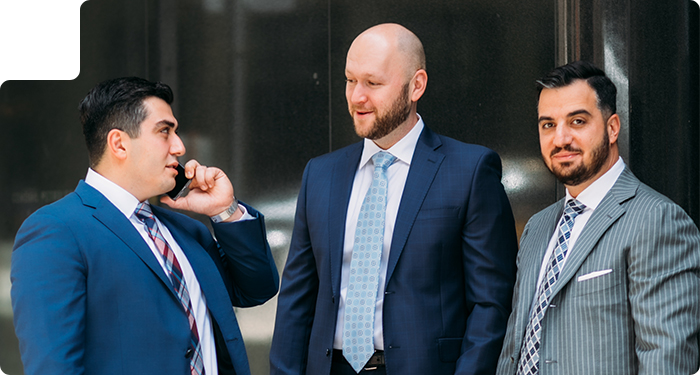Equal employment opportunity (EEO) laws are a collection of laws that protect employees from discrimination during the hiring and employment process. These laws were established under the Title VII of the 1964 Civil Rights Act and cover job assignments, promotions, and terminations. It is important for employees to be aware of their rights under EEO laws and to seek legal help if they believe they have experienced discrimination or harassment in the workplace.
Are you being discriminated against as a job applicant or employee? You’re not alone. The U.S. Equal Employment Opportunity Commission reported 67,448 charges of workplace discrimination in 2020 (EEOC). Here is everything you need to know to properly equip yourself with your equal opportunity rights.
What Are Equal Employment Opportunity Laws?
EEO laws protect employees from discrimination and unfair hiring practices during the recruitment process and in essential employment elements. It is important for individuals to familiarize themselves with EEO laws before interacting with an employer.
How Do Equal Employment Opportunity Laws Protect Job Applicants?
There are countless ways that EEO laws protect potential employees. Here are 7 of the most pertinent ways that Equal Employment Opportunity laws protect job applicants.
Related: What is Employment Law? 6 Key Terms You Should Know
1. Provide the Right to File Charges at Any Point in the Employment Process
EEO laws allow applicants to legally file charges against employers or potential employers during the hiring process.
The type of legal claim can vary widely from harassment to promotion discrimination.
Sometimes employers will try to stop an employee from filing claims or will fire them upon hearing about the claims. This results in a retaliation case.
While the overall rate of equal employment opportunity claims in the U.S. is steadily decreasing, the number of employee retaliation claims is still rising.
Wrongful termination is a particularly important violation of employment law. You can learn more about wrongful termination cases here.
2. Defend Against Discrimination Based on Protected Characteristics
The Title VII Act marked the initiation of protected classes. Protected classes or characteristics are traits that can be identifiably bound to discriminatory action. In other words, protected characteristics are the ways that an employer can discriminate against you.
For example, an employer may deny you a promotion based on your race, nationality, or religion, even though you are well qualified. There are a number of protected classes, including but not limited to: Race, Skin Color, Sex, Age, Disability, Religion, Birthplace, and Pregnancy.
It is essential that you prove your employer’s discrimination on a legally binding basis. Your employer must have taken an illegalaction, or your claim may not qualify and you may not receive compensation.
Related: How Can You Prove Discrimination At Work?
3. Safeguard Employee Privacy in Pre-Employment Inquiries
Based on laws established by the EEOC there are restrictions to the number of questions and the depth of questions that potential employers can ask. Pre-Employment inquires that include information about race, religion, personal history, etc, may violate boundaries related to the legal rights of employees.
Examples of inappropriate employment inquiries include asking about:
- Height and Weight
- Unemployment Status
- Citizenship
- Medical Conditions
One particularly prohibited pre-employment question is asking about disability information.
If you feel that you are being extensively questioned on aspects of yourself that are not directly relevant to your potential job you may be headed towards a discriminatory work environment. However, pre-employment inquiries are not necessarily diagnostic of a toxic work environment. Instead, you should record and gather evidence in case of future legal claims.
Want to know what your case might be worth? Take our free case value estimator quiz here!
4. Prevent Biased Job Assignments and Promotions
Promotions and assignments should not happen based on any discriminatory evidence.
Positions should be earned and achieved through merit and job fit alone, they should not be granted or denied based on certain characteristics.
Giving or denying assignments and promotions based on protected classes is considered to be illegal. Preferential treatment of a certain race, religion, gender, nation of origin, age, or disability status.
In situations where you feel and find evidence that you did not receive a promotion or assignment because of discrimination, you may consider proceeding with a legal claim.
Related: Common Discrimination Situations
5. Prohibit Harassment Inside and Outside of Work Environment
Harassment inside and outside of the work environment is absolutely illegal and unacceptable. Not only is it unethical, but it is also an illegal offense punishable by law. The most blatant example of harassment is physical harm and violation in the workplace. Report these occurrences immediately.
Physical harassment is the most obvious form of harassment, however, there are several others. Comments and slurs, pranks, hate speech, and other negative behaviors related to one’s protected characteristics are considered to be harassment. You must be precise and clear when gathering evidence for a harassment claim both inside and outside of the workplace.
6. Ensure Fair Terms and Conditions of Employment
EEO laws mean that employers are legally obligated to maintain their terms and conditions regardless of a person’s individual protected characteristics. The regular conditions of employment must satisfy the terms and conditions initially laid out in the employment contracts.
7. Necessitate Reasonable Accommodation for Special Circumstances
All special circumstances for employees must be met by employers to a reasonable degree. Your employer should help align accommodations for your disability or special circumstances. Special circumstances are not limited to physical disabilities. Some accommodation examples include:
- Wheelchair accessible locations
- Interpreters for deaf or blind employees
- Flexible shifts for religious observances
Have you been treated unjustly by your employer or potential employer? It may be time to get professional defense for your legal rights.
At Levin & Nalbandyan your fight is our fight. Contact us today to determine your best course of action.






